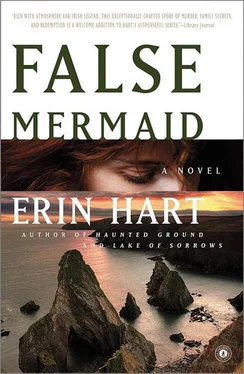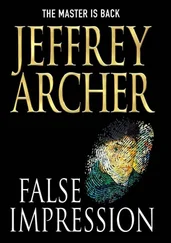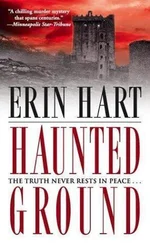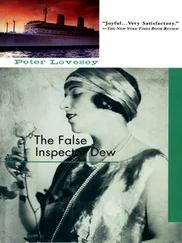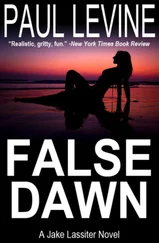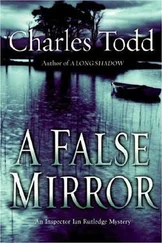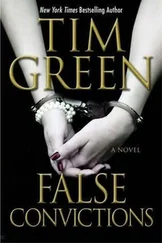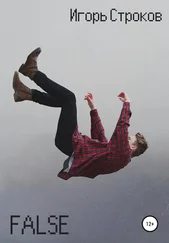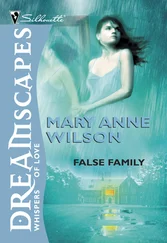“How?”
“He said Jesse got upset, started to make threats against him and his family. All my years in law enforcement, and I swear I’ve never met such a convincing liar. He knew exactly how to play it, how far to push—the kid was only seventeen, but he’d figured all the angles. He knew I couldn’t touch him, and he was right.”
“So you think it was murder by proxy?”
“I’d stake my life on it. I never told anybody this, but I used to drive down to his college, park at the edge of campus and just sit in the car—out in the open, where he could see me, wondering if he had the nerve to try something right under my nose. He never did—way too smart for that. I lost track of him after he left college. But you know what it’s like—there’s always one case that gets stuck in your head. I’m retired eight years now, but I still flip through my notes on the Nash case every once in a while, just in case something might pop. And I have to tell you, I’ve kind of been expecting this call. The last time I talked to Jesse’s mother—must be at least five years ago now—she told me she’d finally found Tripp Nash. After all this time. But before I could get the details, she died.”
“What happened?”
“Heart attack. I tried to find out what she knew, but she was living in a halfway house in Portland by then. They’d pitched her stuff by the time I got the news that she was dead. I’m curious—what’s any of this got to do with your case?”
“I’m not really sure. We found an article about the Nash case in with a bunch of newspaper clips about one of our victims, Natalie Russo. Does that name ring a bell?”
“Not really.”
“There was a note in with the clips as well. Addressed to our suspect. Unsigned. ‘You’re gonna pay. For what you did.’ Postmarked in Portland, Maine.”
“And what’s your suspect’s name?”
“Hallett. Peter Hallett.”
MacLeish cursed on the other end of the phone—softly, but vehemently. “Connie Nash was Tripp’s aunt—his father’s sister. The kid’s maternal grandfather became his legal guardian after the parents were killed in a car crash, but the old man never paid much attention to him, so Connie and her husband took the boy in. He went by Nash when he lived with them, but there was never any legal adoption process. And Tripp was just a nickname. The kid’s real name was—”
“Don’t tell me,” Frank said. “Peter Hallett.” Now it was his turn to swear. He filled MacLeish in on Tríona’s murder, the discovery of Natalie Russo’s body at the river, how they hadn’t been able to establish a connection between Hallett and the first victim. “We’re convinced he was involved, but all the physical evidence so far points to the killer in both cases being female.”
“That doesn’t surprise me. You know what does? That he had no handy scapegoat waiting in the wings for his wife’s murder, nobody conveniently lined up to take the fall. Tripp Nash, Peter Hallett, call him whatever you like, he doesn’t do anything for himself. Doesn’t have to. You want my advice? Look around. Your killer’s got to be someone close to him, somebody like Jesse Benoit—prone to jealousy, easily led. Somebody who believes Hallett’s been ill-treated, abused.” MacLeish was silent for a moment. “He’s just going to keep at it, isn’t he? Until somebody stops him.”
The following morning, while Cormac was on his daily visit to the hospital, Nora and Elizabeth set out again for the caves at Port na Rón. The clouds from the previous day had given way to clear blue overhead, but beneath the open vault of sky, a thick mist rolled in on the sea’s glassy surface. The mist had the strange effect of altering distance, of making the small islands in the cove seem to loom close, and then recede. At times it was only a thin veil, and other times it appeared amazingly solid, looking for all the world like a footbridge upon which a person might walk straight out to the rocky crags in the harbor.
They bypassed the beach this time, and crossed over to the far side of the bay beyond the fisherman’s cottage. The caves were more easily accessible from water than from land. Nora led the way as they climbed down between the rocks. As they drew closer, the smell of salt and seaweed mingled with a distinctive animal scent. These caves were a rookery, Cormac had said—a birthing place for seals, where they came for rest and respite during their most vulnerable time. Nora moved forward into the cave, imagining the floor carpeted with warm bodies, white pups nursing at their mothers’ breasts. Cormac had assured her that seal breeding season wasn’t until the autumn, a few weeks away, and that they could stay here if need be without interfering with the annual migration.
While Elizabeth’s back was turned, Nora removed a bundle of candles, batteries, and food from her pack, and stashed it in a cleft in the rocks. She turned to see Elizabeth crouched and staring at the floor of the cave.
“Look,” Elizabeth said, as Nora approached, pointing to a shallow indentation in the rocks at her feet. “What do you think it is?”
The dishlike depression was splashed with deep crimson. Blood—it had to be. Some creature had been injured here.
Nora heard the soft sound of breathing, and looked up to find herself and Elizabeth observed from the cave’s opening by a spotted gray seal. One of the animal’s eyes was damaged; the side of its head bore a star-shaped scar. It was very like the creature they’d seen down the road at Bruckless. Not completely inconceivable—seals migrated long distances, looking for food. Still, it was odd.
“Lizzabet,” Nora said. She kept her voice calm, hoping not to startle the animal. “Here’s your friend again.”
Elizabeth turned slowly, her eyes widening at the sight of the unexpected intruder. The seal’s fleshy body was draped across the threshold of the cave, and its single dark eye glinted as it looked to each of them in turn. Nora realized she had never been so close to a wild creature, at least never one so large as this seal. She studied the fine white eyebrow whiskers that lent it a look of perpetual wonder. There was a gash in the seal’s fleshy neck—perhaps that’s where the blood had come from. The creature made a soft snuffling sound, and then opened its mouth, exposing teeth and tongue, and let out a bawl that sounded unnaturally loud inside the cave.
“What do you suppose it wants?” Nora asked.
As if in answer to her question, the seal began to shuffle in reverse. Once outside the cave, the animal heaved its bulk to one side, casting a glance back at them with its good right eye.
“She wants us to follow her,” Elizabeth said.
The seal led them down to the water’s edge and along the edge of the beach, turning to check every few seconds, as if to make sure they were still in pursuit. At the end of the rocky alcove, the seal galloped out into the rippling waves and dived, immediately transformed from lumbering beast to sleek bullet—the webbed flippers, useless on land, now marvelously graceful in that watery world. Then it was gone, leaving only widening circles in its wake.
Elizabeth stood staring out at the water, perhaps hoping for a glimpse of a glossy head, while Nora’s attention was pulled to a gleaming cabin cruiser tied up at the near side of the concrete pier. She hadn’t heard a boat approaching, but the thick mist and the sound of the rolling stones might have been enough to mask any engine noise. Or it might have been there all along. Small waves rocked the white hull gently from side to side. No one seemed to be aboard.
Nora felt a cold chill down her arms. She climbed the hill where the pier was attached to the harbor side, and Elizabeth followed. Before venturing out onto the narrow concrete jetty, she turned. “Stay right there, Lizzabet. Don’t move.”
Читать дальше
